The Taube Department of Jewish Studies is proud to announce the recipients of the KGHM Polska Miedź S.A. and the Lilka and Kuba Kronhill scholarships for the academic year 2018/19. The scholarships will be awarded during a special open session of the University Senate on 21 November at 12:30pm in the Oratorium Marianum at the University of Wrocław.
The Department would like to thank the sponsors for their outstanding generosity and support.
Congratulations to all our recipients and best wishes for a very successful and rewarding academic year.
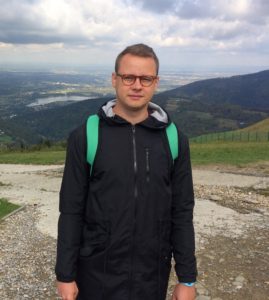 The KGHM Polska Miedź S.A. doctoral scholarship was awarded to Adam Stepnowski
The KGHM Polska Miedź S.A. doctoral scholarship was awarded to Adam Stepnowski
I began studying in the first undergraduate class accepted by the Department. Over the past five years, I have become fascinated by Yiddish literature, to the point that I wrote my BA thesis on Shmuel Jankev Imber’s poetry, and my master’s thesis on the Yiddish literary magazine Tsushtayer. Currently, as a PhD student at the Faculty of Philology, I am working on my doctoral project on shund (literally „trash”) Yiddish sensational literature.
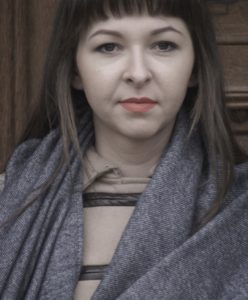 The KGHM Miedź S.A. masters scholarship was awarded to Wioleta Urbańska
The KGHM Miedź S.A. masters scholarship was awarded to Wioleta Urbańska
My research interests include the history of Jews in the Polish lands in the 20th century, as well as both the Yiddish language and the literature written in that language. In particular, I am interested in events occurring in the interstices where Jewish culture met and mingled with Polish and Russian culture. My master’s thesis will examine the presence of Russian literature in the journal Literarishe bleter, published in Warsaw from 1924 to 1939.
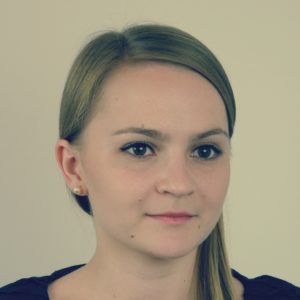 The KGHM Miedź S.A. bachelors scholarship was awarded to Anna Nowogońska
The KGHM Miedź S.A. bachelors scholarship was awarded to Anna Nowogońska
My area of interest is contemporary poetry written in Yiddish, as well as issues related to Jewish multilingualism. My BA thesis will focus on the role of the Yiddish language in the poetry of Irena Klepfish, an American poet born in the Warsaw ghetto who interwove English and Yiddish in her poetry though Polish was her first language.
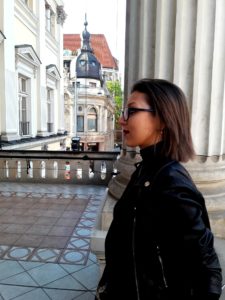 Lilka and Kuba Kronhill scholarships were awarded to Anna Brzozowska
Lilka and Kuba Kronhill scholarships were awarded to Anna Brzozowska
Literary translation is my passion and my primary focus during my studies at the Department of Jewish Studies. My heart has been stolen by Yossel Birstein, a bilingual author of Polish descent (Bielsko Biała) who wrote in Hebrew and Yiddish. My ambition is to translate his stories from both these languages and provide, first, a translation theory commentary due to the fact that the author himself used to translate his works from Yiddish into Hebrew, and, second, a literary commentary. This is important to me because not a single of his translated works has been published in Poland to date. It is time to bring Birstein back to Poland, the birthplace that he often referred to in his work.
and to Agata Ganczarska
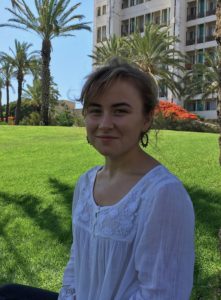 I am working on the first biography of Sarah Rotbaum, an actress associated with the Moscow GOSET. My goal is to establish the meaning of the work of this forgotten artist for the Jewish theater and Jewish cultural life before and after the WWII, and to broaden the context of her work, which was strongly associated with the post-war Wroclaw Jewish community. I am examining Rotbaum’s Yiddish correspondence and other relevant materials from the Jewish Historical Institute and Ossolineum archives.
I am working on the first biography of Sarah Rotbaum, an actress associated with the Moscow GOSET. My goal is to establish the meaning of the work of this forgotten artist for the Jewish theater and Jewish cultural life before and after the WWII, and to broaden the context of her work, which was strongly associated with the post-war Wroclaw Jewish community. I am examining Rotbaum’s Yiddish correspondence and other relevant materials from the Jewish Historical Institute and Ossolineum archives.

